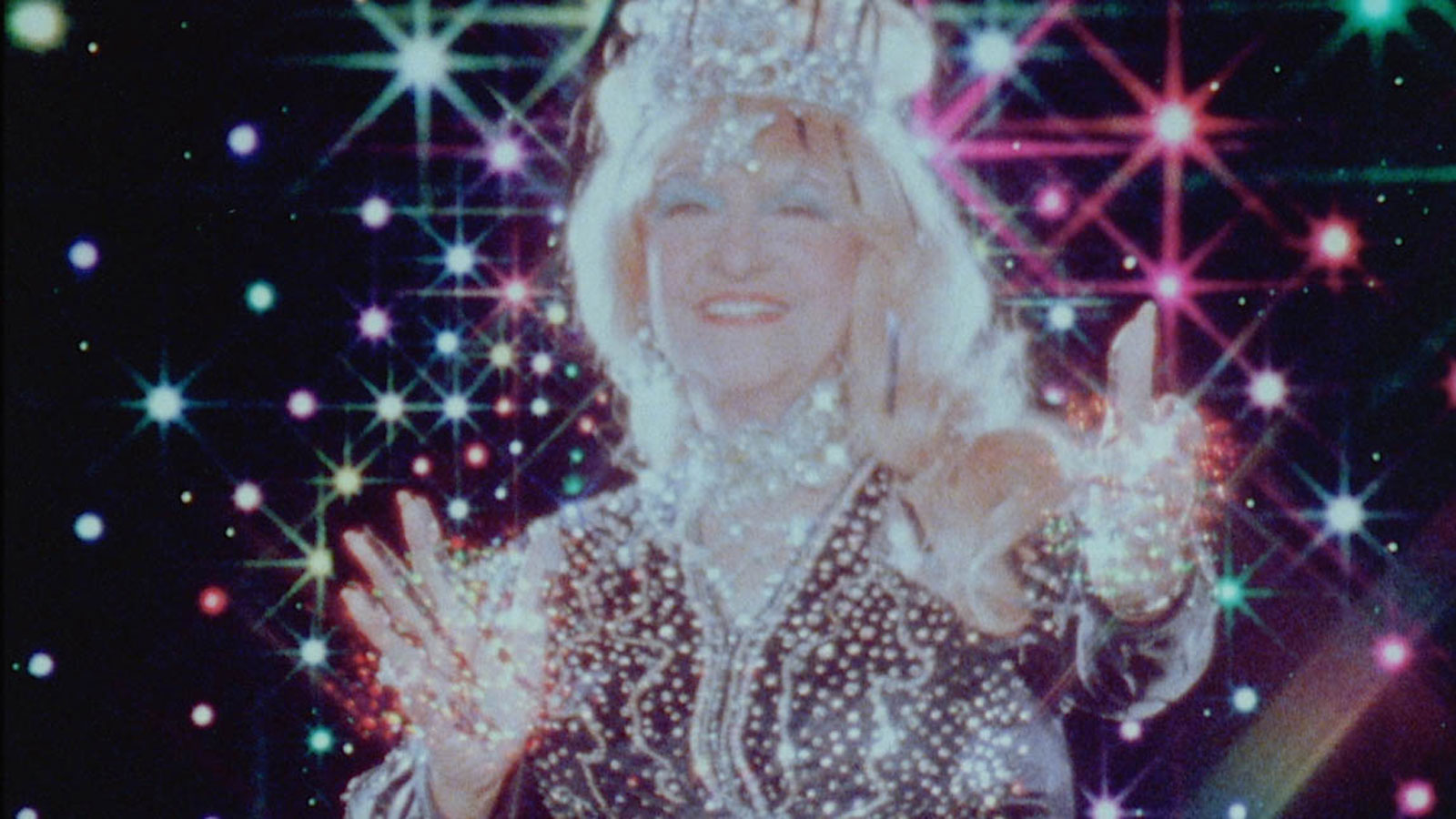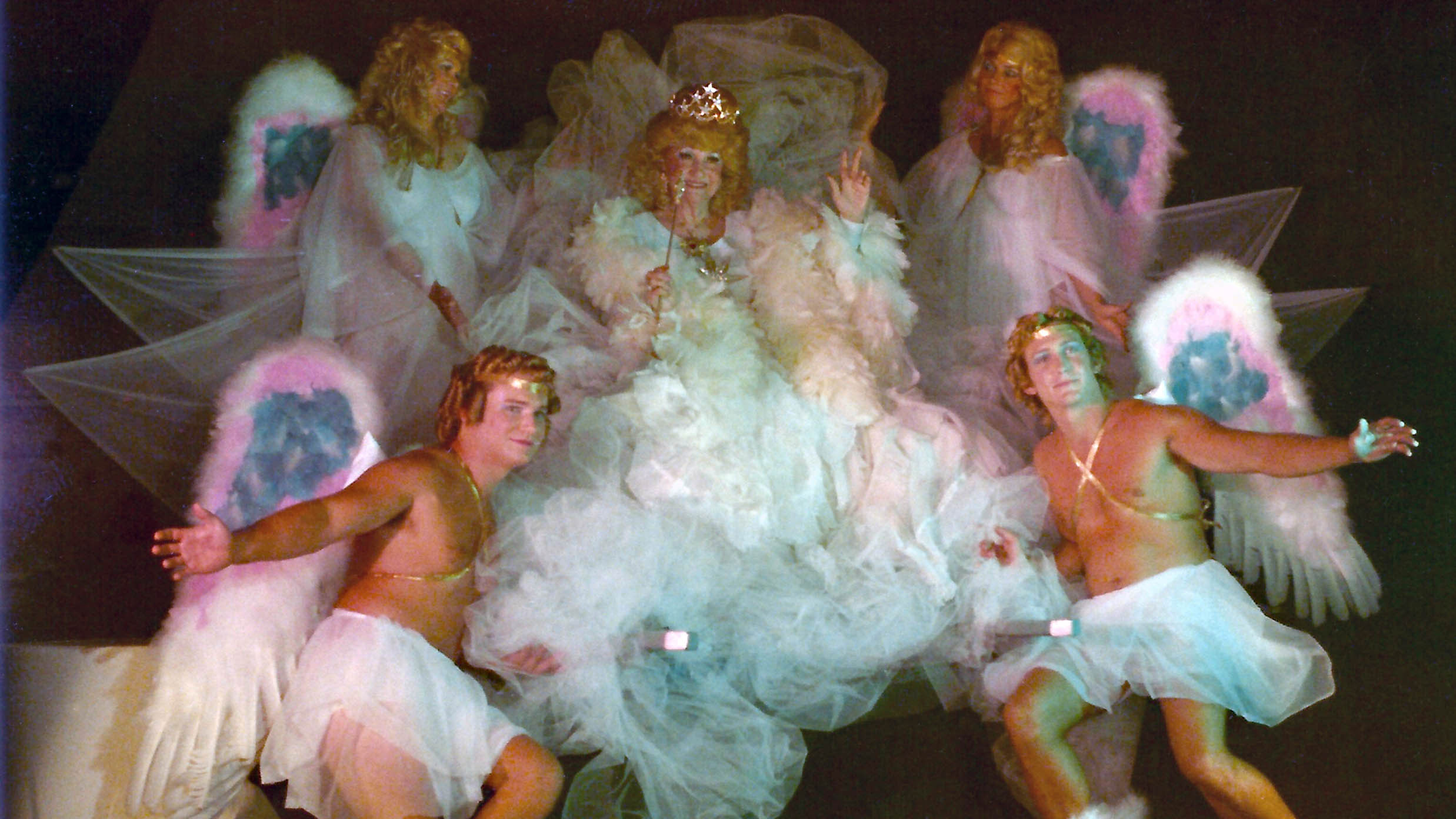Complex Cosmologies: Jodi Wille on Welcome Space Brothers

Critics Campus 2024 participant Tara Kenny speaks to director Jodi Wille about Welcome Space Brothers, a remarkable chronicle of an alternative spiritual community that takes a very different tack from most documentaries of its kind.
Consider the premise of Welcome Space Brothers – a bunch of idealistic, attractive young people in 1970s California embark on an artistic and spiritual odyssey under the tutelage of a charismatic leader with a fondness for UFOs and glitter – and you might assume things are heading towards a lot of exploitative sex, or worse. Don’t worry: filmmaker and subcultural voyager Jodi Wille’s documentary about the Unarius Academy of Science and its late, fairy godmother-esque leader, Ruth Norman (known to her followers as Uriel, an acronym for “universal, radiant, infinite, eternal light”), is not another true-crime cult documentary. For one, nothing particularly egregious happens. “I like that no-one gets cancelled in this film,” says Wille, speaking to me from Los Angeles via Zoom (her background features a sprawling cosmic galaxy, which feels appropriate).
Wille believes that narratives about new religious and spiritual communities that end in tragedy and controversy, such as Jonestown or the Rajneesh movement, are over-represented in popular culture. “These are the bad apples among literally thousands of groups that we never hear about, that don’t do anything particularly bad and actually help a lot of people heal – like Unarius,” she explains. The director is interested in examining these groups through a baseline of respect that they rarely receive from mainstream culture, which instead tends to pity, ridicule or fear them. Welcome Space Brothers is her second feature-length documentary, following The Source Family (2012), which traced the more objectively chequered history of another 1970s alternative spiritual movement. Elsewhere, Wille has described that film as a “Rorschach test”, in that one viewer’s cautionary tale is another’s visionary experiment.
Wille first came across Unarius in the 90s, when her friends would bootleg and trade VHS tapes of their “totally bonkers” films, which aired on public-access television and featured members re-enacting their past lives for healing purposes through camp, soap-operatic pageantry. Years later, while curating an exhibition of visionary art, she reached out to the Unarians, who invited her to view their vast archive of films, photography and painting. Enchanted by what she found, Wille began learning about their beliefs and history and working with the group to showcase their archive, which eventually inspired the film. “It took me a while to figure things out,” she says. “They have a complex cosmology … under all the glitter.”

Welcome Space Brothers
Welcome Space Brothers celebrates the group’s formidable artistic achievements, which were propelled by Norman’s uncanny ability to creatively inspire her followers by providing a shared purpose and framework. In the 70s and 80s, during the group’s heyday, many Unariuns worked full-time jobs, then spent their nights at the centre crafting fantastical costumes and sets and filming improvised “psychodramas”. “Their DIY film studio reminded me of [Andy] Warhol’s Factory, but for spiritual healing,” says Wille. “Ruth had these younger filmmakers who were running things, but she was overseeing it all while in her 70s.”
Alongside Norman’s leadership, Wille credits the Unarians’ prolific creative output to the process-based nature of their art, which prioritised self-knowledge over commercial success, along with their belief that they were channelling extraterrestrial beings who guided them. “Throughout human history, some of the most creative minds have claimed that their best ideas don’t come from them – basically, that consciousness is not local,” she says. “I think it’s entirely possible that they were tapped into higher intelligences that were helping them, whether from within their minds or separate from them.”
The documentary also chronicles the complex interpersonal dramas that played out between the Unarians, from Norman’s unrequited romantic interest in a younger man to members’ struggles with sexual identity, squabbling over artistic credit and the painful departure of key figures. Where possible, this history is told through present-day interviews with those who lived it. While Wille became friendly with many of her subjects and “speaks their language of metaphysical spirituality”, she retained creative control and told the story from the position of a respectful outsider (but an outsider nonetheless). “Tonally, it was a tightrope,” she says, describing the editing process, which took years and involved a team of eight. “We would take out one line or scene and it would feel like a totally different film. We went back and forth between feeling like we were demonising the group [and] feeling like it was a puff piece that was made by Unarius.”
Ultimately, Welcome Space Brothers celebrates the Unarians’ singular world view and actualised artistic vision while also capturing the messy social dynamics that are an equally important part of their lore. In charting the journey of a group of flawed human beings united by a shared desire to transform themselves through collaborative creation, Wille resists judgement or salaciousness. “Cultivating a sense of wonder, allowing for mystery to exist and having a sense of respect for people who believe different things to us is something that I’d love to share,” she says. “I’d love to see more of it in the world.”